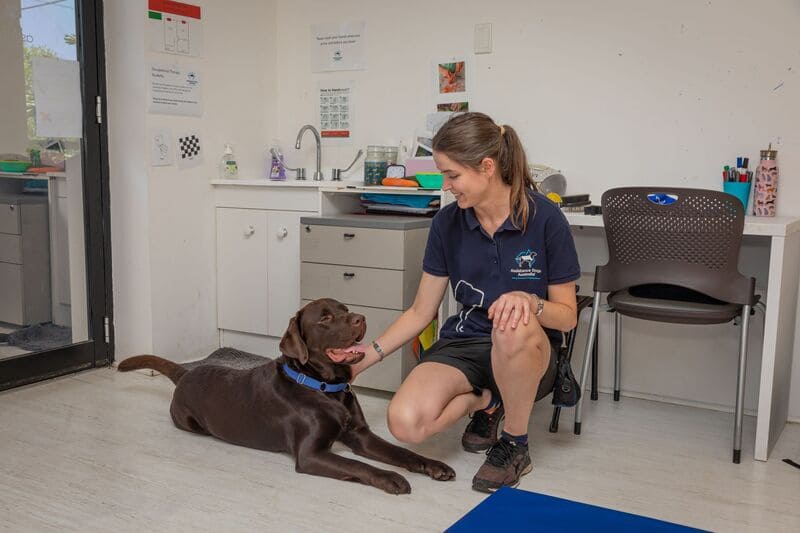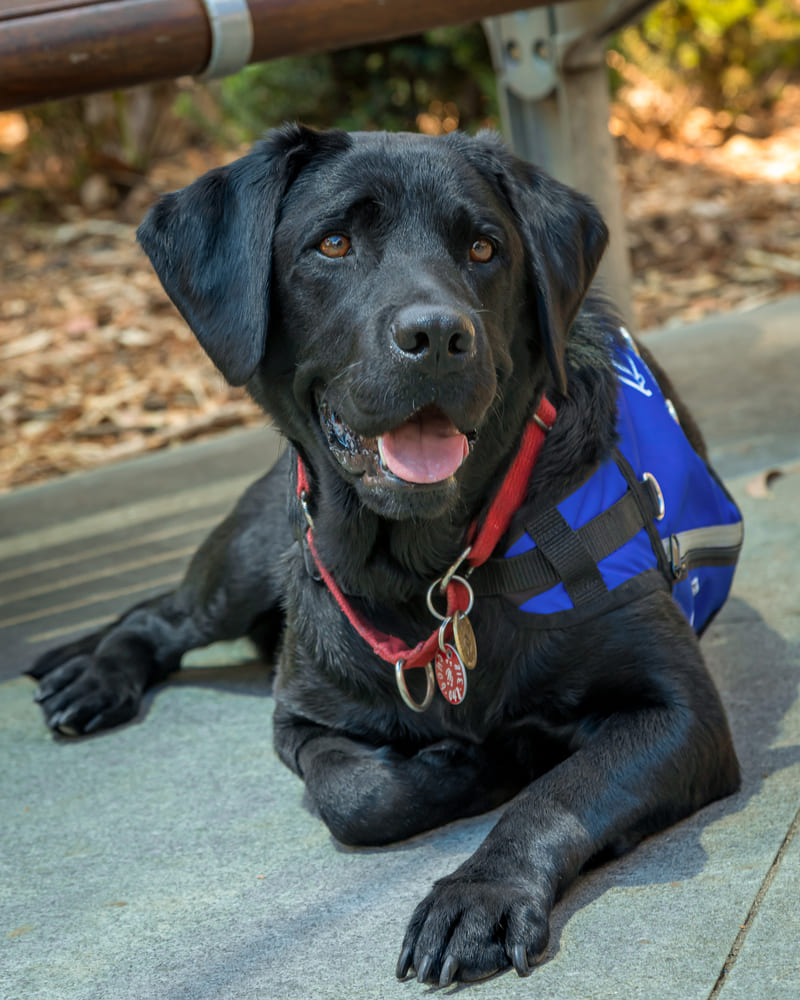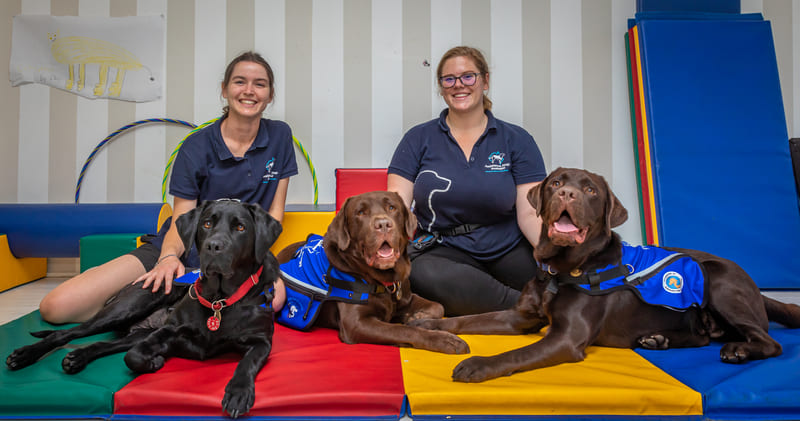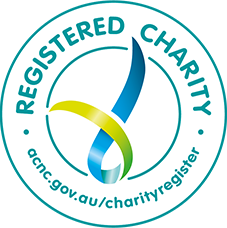Therapy Dogs in Australia
We all know that dogs make the best of friends, but they can also help to heal people in the most unexpected ways.
Therapy Dogs can reach out to people who may not be responding as well to other forms of therapy. Therapy Dogs can break down barriers and bring joy to people in their own adorable and loving way.
Their presence — and their affection — can give comfort and support to people of all ages who are feeling anxious or low in mood.
Therapy Dogs can work in places like hospitals, palliative care, dementia wards, aged care facilities, and mental health facilities. They are handled by a trained allied health therapist or medical professional.

● Make people feel more connected to nature.
● Build a sense of motivation in the client that is driven by personal satisfaction, rather than external factors like rewards or punishment.
● Promote a hormone called oxytocin which is associated with empathy and relationship-building. It is commonly referred to as the “love hormone”.
● Motivate clients to attend and participate in therapy sessions.
● Help clients balance their emotions.
● Drive social interactions.
Sometimes, all a Therapy Dog has to do in a session is to give cuddles or sit by the client.
That does not mean that any dog can become a Therapy Dog.
Among other qualities, a Therapy Dog should be calm and sociable around strangers, not be frightened by loud noises and easily adjust to different environments. They are able to ignore distractions and love to be petted.

Currently, Assistance Dogs Australia do not place Therapy Dogs with individual clients.
Assistance Dogs Australia’s Therapy Dogs
Within Assistance Dogs Australia, a Therapy Dog is a trained dog who is involved in Animal Assisted Therapy (AAT) sessions.
These sessions are provided by a handler who is a therapist or medical professional (such as occupational therapist, psychologist, or counsellor).

AAT is used to promote improvement in physical, social, emotional and/or cognitive functioning of the client, such as a child living with autism.
Sessions are aimed at achieving goals. It can be provided in a variety of settings — even through Telehealth, which we offer — and it can involve one client or a group of people.
Click here to find out more about our Animal Assisted Therapy program.
Animal Assisted Therapy can be used in occupational therapy, psychology, nursing, or social work.
What is NOT a Therapy Dog?
A Therapy Dog is not an Assistance Dog, as Therapy Dogs are not trained to give specific health-related support.
Our Educational Support Dogs and Facility Dogs are classified as Assistance Dogs rather than Therapy Dogs.
Therapy Dogs do not have the same rights as Assistance Dogs, such as Public Access Rights.
A Therapy Dog is different to an Emotional Support Dog. Click here to find out the difference.
About us | Support us | Services | Terms & Conditions | Contact us
Copyright © 2023 Assistance Dogs Australia ABN: 90 074 746 160. Privacy Policy.


